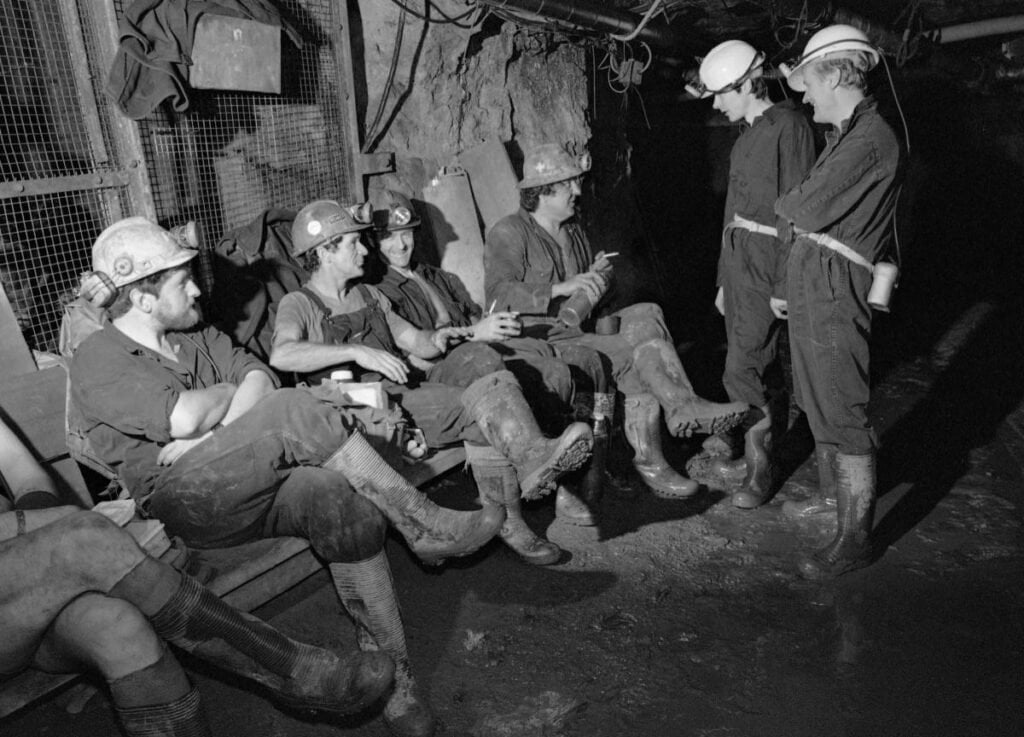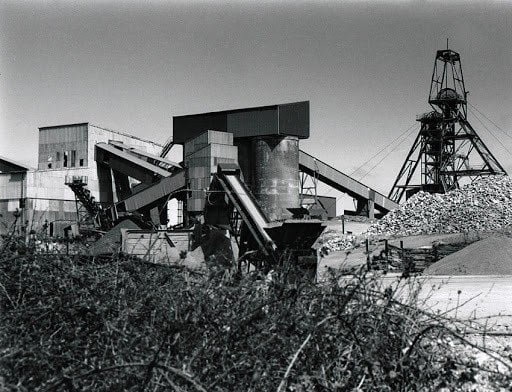The first time I met Walter he was in a terrible rage, his eyes gleaming redly in the light of my cap lamp like some fully paid up member of Satan’s workforce. This impression was heightened by the fact that we were 340 fathoms down in the gloom and stifling granite of a Cornish tin mine.

I, as a new labourer, had been sent by the shift boss, Vernon Salmon, to assist Walter, a contract miner, who was having a bad day. Every day with Walter was a bad day. Walter was mucking out boxholes, short vertical openings in the rock which would eventually contain ore chutes. He was hurling the mucking machine backwards and forwards. Rocks were spilling and flying off the overloaded wagons and the mucking machine with ear-splitting noises that only com-pressed air can make, and derailing the machine from the bent and battered track. Cursing inaudibly in the din and with foul looks my way as if it was all my fault, Walter would jam a drill steel under one corner, fling the machine into reverse and defy it to rise and fall with a crash back onto the rails. With a full wagon we would strain shoulder to shoulder to push the wagon and its one ton of rock back to the points on the cross cut and bring in the next one. Mucked out, we retired to the crib seat for a drink of water, the sweat running in rivulets down our dust-coated bodies. With the job finished, Walter instantly became human again. “Eez a bastard, Ricky,” he used to say. Walter Miskievitch was born in Poland and emigrated to Argentina as a boy. When war broke out in Europe he came to England to serve in the Free Polish Airforce, at Nancekuke. After the war he, like many of the Poles, worked at South Crofty Mine and had been there 25 years. Stripped off underground, Walter’s big pectoral muscles and flat stomach denied his fifty odd years. He worked like a maniac all day and lifted the roaring jackhammer drill around with practised ease. Only the daylight above seemed to bring out the ravages of years underground. Bareheaded and in an old grey mackintosh summer and winter, Walter seemed to walk out of the mine yard gate transformed into an old man. I soon achieved the doubtful privilege of being Walter’s full-time mate, probably because no one else would work with him. We made lots of money driving raises and drifts but with Walter it was undoubtedly earned the hard way. Walter had always taken on the hottest tunnel faces or gassiest raises, drilling, blasting and mucking in cascades of acid water or a storm of lethal silica dust. Time was money underground and for Walter near enough was good enough, which is why his chain ladders were blasted off the raise walls, or his wagons derailed, or his air and water pipes leaked and screamed. It was Walter’s philosophy that as long as the drill was hammering the rock we were making money. If we were running late, which we invariably were trying to do two day’s work in one, Walter would have me loading high explosive into the drill holes while he drilled alongside, a terrifying and illegal practice. Six o’clock in the morning is a depressing time to face the heat and foul air of the mine tunnels. Walter would stride off enthusiastically into the gloom as we stepped out of the cage and I would try to keep up with him, the weight of the drill steels biting into my shoulder. My helmet light followed Walter’s boots, an old pair of Wellingtons with no steel toecaps and the heels split so that he had wet feet all day. With all his money he would never buy a new pair of boots. Our crib seat was only a temporary respite as I poured a cup of thermos coffee. Walter would bring just a bottle of water in his jacket pocket, insisting that he didn’t come underground to eat. My sandwich would go untouched all day unless I could grab a bite on the run on the way back to get the gelig-nite. At the end of the shift, soaked and covered in grit from the drill, I would sink down at the shaft station where we waited for the cage and gratefully wolf my lunch. Walter would be at the front of throng, elbow-ing his way first into the cage and insti-gating most of the horseplay as the crowded cluster of cap lamps rose up into the dripping darkness. Walter was a great talker and liked to entertain a group of young-sters at the shaft station with tales of Argentina, mining, or the war until the cage came and then he was gone like a shot. He rolled the thinnest possible cigarettes, a strand of tobacco laid along the paper, rolled and licked down. His lighter would flicker in the howling exhaust of the rock drill, the cigarette would glow, puff, puff, and it seemed to be gone except for the butt end which I always imagined was going to scorch his lower lip any minute but never did. Walter and I were together for about six months. When I came back after three years at Camborne School of Mines, Walter’s health was broken. He was relegated to mucking out old stopes with his trammer, fat, jovial Treive, a sort of under-ground Laurel and Hardy act. I have often wondered over the last twenty years if Walter is still alive or whether the dust and gasses of those years of labour in the roaring gloom of the
Cornish granite took him. If there is a cage in heaven Walter will be there, elbow-ing his way in, with that skinny roll-up stuck to his lip.
